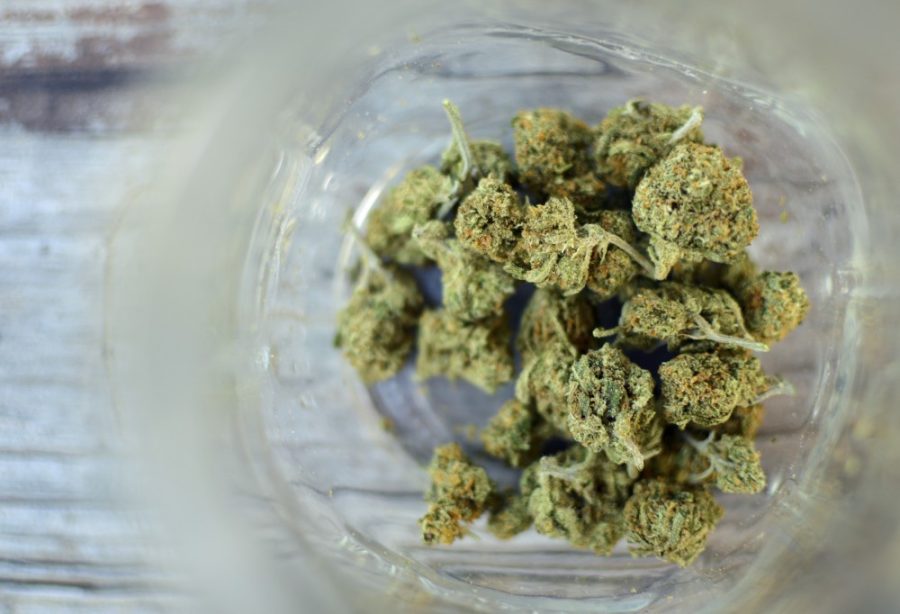Nothing brings folks together like drug legalization. Arizonans around the state have likely seen attack ads and supportive messages alike for Proposition 205, the proposition to legalize personal possession of marijuana.
Both sides are getting prickly over the misinformation spread about the proposition. Colorado officials even sent a letter to anti-Proposition 205 Arizonans for Drug Responsibility asking that they kindly stop lying in their political ads.
RELATED: On Prop. 205 and marijuana legalization: An interview with Oregon Congressman Earl Blumenauer
Luckily, numbers don’t have an intrinsic agenda. People can warp and twist them to the best of their ability, but in a vacuum, they are angelic in their innocence. These are what the numbers have to say after digging into the findings of the Arizona Department of Public Safety, the Rocky Mountain Poison and Drug Center and the Colorado Department of Public Safety and Department of Revenue.
Legalization of marijuana will generate millions of dollars in tax revenue
True
The legalization of marijuana has generated $76 million in revenue in 2014 and $135 million in 2015 in Colorado from a combination of taxes and license fees. The revenue has increased 76 percent in just one year, suggesting a growing industry that will continue to generate tax revenue in the coming years.
Tax revenue from the legalization will not make it to schools, as Proposition 205 opponents claim
False
The government must keep detailed records of all financial accounting, and $13 million and $35 million were directly allocated to public school capital construction assistance in Colorado in 2014 and 2015, respectively. Marijuana tax and license fees generated $58 million and $91 million for the marijuana cash transfer fund, which can go to the Department of Education, among other things.

Legalization of marijuana leads to increased use among juveniles
True
While arrest rates among adults decreased, juvenile arrests stayed consistent and even increased slightly. Marijuana use among 12-17 year olds in Colorado in the previous 30-day period steadily increased through the past 10 years—with 11.2 percent of 12-17 year olds in 2013 reporting marijuana use before the legalization and up to 12.6 percent in 2014. Calls to the Rocky Mountain Poison and Drug Center (RMPDC) spiked among juveniles from 63 calls in 2013, to 86 and 112 in 2014 and 2015, respectively.

Children are more likely to accidentally consume edibles than other types of marijuana
True
According to the RMPDC, young children (0-8 years old) are more likely to consume marijuana edibles compared to other types of marijuana. The ratio of edibles vs. other types of marijuana consumption was also higher in this age bracket than any other. RMPDC’s findings were based on the number of marijuana exposure calls to the RMPDC.
Legalization of marijuana will save money by reducing the number of arrests
True
From 2012 to 2014, marijuana related arrests in Colorado dropped by nearly half. In the same time in Arizona ,marijuana related arrests increased slightly from 16,500 in 2012 to 17,593 in 2014. Proponents of Proposition 205 point to this reduction in arrests as a way to save on policing, litigation and imprisonment costs.
Legalizing marijuana will lead to an increase in drug related DUIs
True
DUID (Driving Under the Influence of Drugs) incidents in Denver from 2013-2015 increased 76 percent, from 84 incidents to 148, and marijuana related DUIDs increased 47 percent, from 33 to 73 incidents. Opponents of Proposition 205 cite the lack of an effective way to test for high drivers and the increase in DUIDs as a reason to oppose legalization.
Conclusion
Proposition 205 boils down to the voter’s viewpoint of the social costs of marijuana versus the tax revenue generated and policing costs saved. The numbers don’t lie, and it’s up to Arizona voters to take in the facts and speak their mind on Proposition 205.
RELATED: Arizona posed to vote on legalizing marijuana with Proposition 205 on Nov. 8
*Data for this article was compiled from the Colorado Department of Public Safety Early Marijuana Findings, Arizona Department of Safety Crime Reports, The Rocky Mountain Poison and Drug Center Data and the Colorado Department of Revenue Marijuana Tax Data
Follow Alex Furrier on Twitter.









